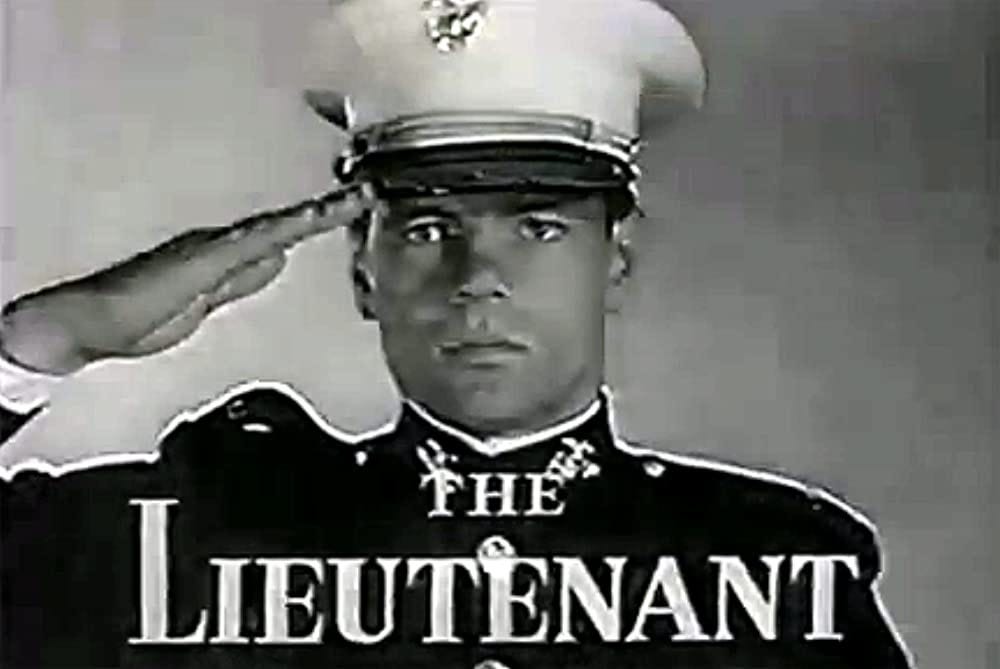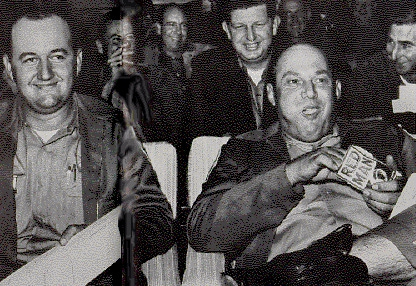Since I gave up on professional sports and most of cable television I find that when I’m looking to watch some tube I gravitate toward how-to videos, movies, and old television. I find the old television shows fascinating.
By “old”, I mean pretty old—fifty or sixty years old. Shows like “The Lieutenant”, a Gene Roddenberry project that ran from 1963-1964, or “The Jackie Gleason Show” which ran throughout the 60s. “The Rifleman”, which ran from 1958-1963. These can be found, either clips or entire shows, on streaming services and Youtube. There are a number of videos on Youtube that list the top songs of each year with video clips of the performers. The Isley Brothers doing “Twist and Shout” in 1961. Chuck Berry rocking “Sweet Little Sixteen” in 1958. Paul Anka. Louis Prima. All before my time. I was born in 1958 and didn’t pay any attention at all to music for the next ten or eleven years.
The interesting thing about watching these videos, for me, is it is like being an anthropologist looking into an alien culture. Manners are different. The clothing. People drink and smoke more. Taboos and morals and the understanding of the world all seem odd and slightly tilted. It is peek into a world which no longer exists.
Time slips away. In the film “Ghost Dog: The Way of the Samurai”, the main character, played by Forrest Whitaker, quotes the Japanese writer Yamamoto Tsunetomo :
“It is said that what is called the Spirit of an Age is something to which one cannot return. That this spirit gradually dissipates is due to the world's coming to an end. In the same way, a single year does not have just spring or summer. A single day, too, is the same. For this reason, although one would like to change today's world back to the spirit of one hundred years or more ago, it cannot be done. Thus it is important to make the best out of every generation.”
This is what it feels like watching old television. I notice the spirit of an age, neither better or worse, and clearly see that it has irretrievably passed.
This understanding colors my thinking when I watch current events unfold. It seems like everyone is looking back, trading in cliches and stock characters that no longer exist, or imagining that this age, the age we are in, is superior and far more enlightened, or some combination of the two. This is just a pose we strike. “Look at me,” we think, “I am so much more spiritually centered and in touch than those poor bumbling people in their odd haircuts!” And we imagine this while flipping through a magazine featuring the latest trends in who’s important and famous and what fashions are trending as if these are the sine qua non.
And our media encourages this.
Consider three recent stories that captured the news cycles: the Rittenhouse trial, the trial of the three men who killed Ahmaud Arbery, and the vehicular massacre at the Waukesha Christmas Parade. The reporting of all three is riddled with cliches from yesteryear.
As the verdict in the trial of the three men convicted for killing Arbery--Greg McMichael, Travis McMichael and William Bryan—was being decided, the coverage focused on strange details that had little to do with the case. They drove pickup trucks. They had a shotgun. They were white. In reality, here in 2021, the case boiled down to when a person in Georgia can, or can not, make a citizen’s arrest. But white men in pickups with shotguns? That makes the individuals involved seem to be extras from the 1967 film “In the Heat of the Night”. We imagine, because we are encouraged to imagine, fat white guys in suspenders chewing tobacco and cruising dirt roads in a 1960 Chevy C-10 hunting Freedom Riders.
That, though, is an age long past. The few ‘60 C-10s that remain are owned by collectors. Freedom Riders vanished in the early 60s, their job done. The cliches, though, still resonate. We are encouraged to remember these two guys, Deputy Cecil Price and Sheriff Lawrence Rainy, who were charged for the murder of three civil rights workers in 1964 (Michael Schwerner, Andrew Goodman, and James Chaney) and to imagine that these are the defendants charged with killing Ahmaud Arbery.
This is cynical and stupid. 1964 was more than half a century ago. A different age.
During the Rittenhouse trial, this photo was often featured.
Look! A hefty white kid with a backward baseball cap, in a military green t-shirt, with a scary gun, shouting. He must be guilty of something. He certainly looks like those terrible white men from “Mississippi Burning”! Again resurrecting the cliches of an age past like the piecemeal corpse of the Frankenstein monster. Never mind that no one who was injured or killed was black, or that they were actively trying to kill Rittenhouse when they were shot. Optics. And if it is necessary to make up a narrative and drag up the optics of ages past, so be it.
In the immediate aftermath of the mass killing, done by Darrell Brooks, a 39 year old man with an extensive criminal record, this is a sampling of how the story was reported:
From the Milwaukee Journal Sentinel: “Just before dusk on Sunday, a 39-year-old Milwaukee man driving a red Ford Escape ripped through barricades that were blocking traffic in downtown Waukesha for the city's annual Christmas parade, triggering a sequence of events that would leave at least six dead and 62 injured.” There is no photo of Brooks.
The BBC reported: “At least five people have been killed and more than 40 injured after a car ploughed into a Christmas parade in the US state of Wisconsin, police say.”
CNN reported: “More than a dozen remain hospitalized after deadly Waukesha parade crash”
Each of the stories mention the “red SUV”. None mention that the suspect is black, because there is no narrative to be served by doing so. In the case of CNN and the BBC, they seem inclined to blame the vehicle. “A car ploughed” in a “parade crash”, as if no human agent was involved. It’s a very silly narrative and it is doomed to collapse.
Though the spirit of the age comes and goes, to be replaced by the next, some things never change. People are confused and imperfect, and no amount of philosophy or legislation is likely to change that. Evil has been done and will be done again, and it is no more rational to saddle people today with the sins of ages past than it is to hold them responsible for sins we imagine might be committed in the future.
If the media and progressives have their way, though, this is exactly what we will do and long into the future we will all be remembered as the Age That Lost Its Mind and normalized mental illness.
All of the best stories, though, today and in the past, are stories of the individual overcoming obstacles, rising above the fray, and doing great things. That, anyway, continues to resonate. There are no heroic stories of the person who cleverly hid in the crowd to squeak by, nor will there be.
So today, and forever going forward, there will be heroes, and they will not be the people who obtain the most likes or earn a blue check mark. They will be the same as the heroes of ages past, people who fought their baser instincts, struggled against great powers, and did the right thing despite the obstacles.
They are still among us. Just don’t hold your breath waiting for the media to point them out.




Our world as we remeber it is going to hell in a hand basket!!! A saying from back when we grew up. The only hero's the media has are the one's that scream the loudest about racism and the like. Like I said our world is going to hell in a handbasket.